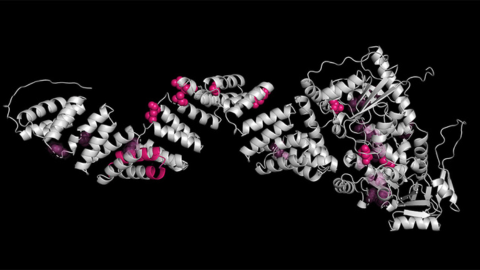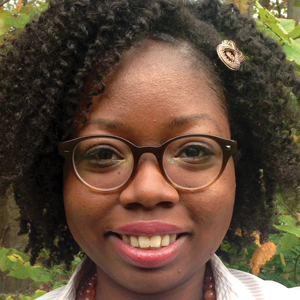Working at a scientific society
Are you a scientist interested in an a career outside of academia and industry? Do you enjoy mission-driven work? Do you want to make an impact on scientists at different career stages? Working for a scientific society might be for you.
For this week’s column, I interviewed three people who work at societies to learn about their career journeys and jobs. I found it interesting that they all had different entry points. My next two columns will have more employee stories and some key takeaways for those considering careers in this space.
Longtime member to society leader
William B. Coleman is the executive officer for the American Society for Investigative Pathology.

After earning his Ph.D. in biochemistry from Wake Forest University in 1990, Coleman did a postdoc at the University of North Carolina at Chapel Hill. Then he became a tenure-track faculty member at the UNC School of Medicine. It was during this time that he became a member of ASIP. Within just a couple of years of membership, he became a volunteer leader, first as a member of the organization's program committee, which he later went on to chair.
Over the next 20-plus years, Coleman held various leadership positions at the medical school and on a volunteer basis at ASIP, including councilor at large, secretary-treasurer, vice president, president and past president. He told me that holding all of those ASIP positions gave him a deep understanding of the committee structure, society governance, and how to design programs for members.
When ASIP's executive officer announced his retirement, ASIP members encouraged Coleman to apply, so he did.
“I was at a certain point in my career in Chapel Hill when I didn't have any graduate students in my lab at the time … and I was kind of at a place where some of my funding was coming to an end,” he said. “I think because I had been in the leadership in the society, it was a very comfortable decision on their part.”
He became ASIP's executive officer in 2018. Today, he manages the entire society's operations, including personnel, meetings, and career-development and education programs. He said he also contributes to the scientific program for the annual meeting and thematic issues of ASIP journals. “I enjoy contributing to those kinds of things because it fuels the need to continue to have some of that academic kind of satisfaction,” he said.
Landing a job after being a member
Erica Gobrogge is director of postdoctoral affairs at Van Andel Institute, an independent research institute in Grand Rapids, Mich. She became a member of the American Society for Biochemistry and Molecular Biology while she was in graduate school.

“I did an informational interview with Chris Pickett," who was at the time an ASBMB policy fellow," she said. "He recommended that I apply for Hill Day. I got accepted. That was my first substantial interaction with the society.”
Gobrogge attributes her Hill Day experience as making her science policy fellowship applications stand out. After earning her Ph.D. in molecular and microbial pathogenesis from Washington University in St. Louis in 2014, she joined the ASBMB as the science policy fellow. (Pickett had been promoted to policy analyst by then.)
“I did that for a bit and then decided that my passion was really more for Ph.D. career and professional development . A position happened to come up on the ASBMB education team while I was doing all of this ruminating,” she said.
She talked to Barbara Gordon, ASBMB's executive director at the time, about her interest in the position. She applied and was hired in 2015. As the education and professional development manager, she oversaw multiple projects and programs and managed junior staff members. She also served as the staff liaison for multiple ASBMB member committees.
Today, as director of postdoctoral affairs at VAI, Gobrogge still wears many hats. She leads professional-development training, provides career advising and support to postdocs, and guides the office’s strategic vision, among other responsibilities. And, she remains involved with the ASBMB as a member of the Membership Committee.
Kirsten Block is director of education, professional development and outreach at the ASBMB. This is her second society position.
Like Gobrogge, she conducted informational interviews with people in different nonacademic positions while she was in graduate school. But after earning her Ph.D. in molecular, cellular and developmental biology from Yale University, she took an oncology postdoctoral fellowship at the Johns Hopkins School of Medicine.

“I wasn’t quite sure what career path I wanted to take at the end of my graduate training," she told me. "I chose to continue my training to keep the academic door open a little longer.”
In an earlier interview with ASBMB Today, Block explained her thinking during that period this way: "Looking back, I think the decision to pursue a postdoc was at least partly influenced by advice I had previously received that once you leave academia, it is very difficult to come back. Whether it was out of an abundance of caution or purely indecision, I wanted to keep my options open. That said, I realized pretty quickly into my postdoc that an academic path was not one I wanted to pursue, and that realization changed the nature of my postdoc to include activities away from the bench that I could use to build transferrable skills and find the right path for me."
After completing her postdoctoral fellowship, Block was hired as the associate director of research and graduate programs for the American Association of Colleges of Pharmacy. She then became the director of research and graduate programs. In that role, she supported faculty research and graduate training across the colleges of pharmacy.
“I learned a lot from faculty and research students while I was there, and I took pride in helping them succeed,” she said.
Her experience at AACP prepared her for her current role at ASBMB. She manages an extensive portfolio of programs that serve undergraduate students, graduate students, postdoctoral fellows and early-career faculty.
"For most of the department’s portfolio, I am fortunate to have a small but dedicated staff that take the lead in implementation while I provide more strategic oversight to ensure we are aligning our activities with the ASBMB mission," she said.
Her work requires her to collaborate with various departments at the ASBMB to make sure these programs are effective in meeting member needs.
“Perhaps the most important meetings, though, are with our members. None of our programs would be successful without the guidance and input of dedicated committees and other ASBMB volunteers,” Block said.
Enjoy reading ASBMB Today?
Become a member to receive the print edition four times a year and the digital edition monthly.
Learn moreFeatured jobs
from the ASBMB career center
Get the latest from ASBMB Today
Enter your email address, and we’ll send you a weekly email with recent articles, interviews and more.
Latest in Careers
Careers highlights or most popular articles

Upcoming opportunities
Friendly reminder: May 12 is the early registration and oral abstract deadline for ASBMB's meeting on O-GlcNAcylation in health and disease.

Sketching, scribbling and scicomm
Graduate student Ari Paiz describes how her love of science and art blend to make her an effective science communicator.

Embrace your neurodivergence and flourish in college
This guide offers practical advice on setting yourself up for success — learn how to leverage campus resources, work with professors and embrace your strengths.

Upcoming opportunities
Apply for the ASBMB Interactive Mentoring Activities for Grantsmanship Enhancement grant writing workshop by April 15.

Quieting the static: Building inclusive STEM classrooms
Christin Monroe, an assistant professor of chemistry at Landmark College, offers practical tips to help educators make their classrooms more accessible to neurodivergent scientists.

Unraveling oncogenesis: What makes cancer tick?
Learn about the ASBMB 2025 symposium on oncogenic hubs: chromatin regulatory and transcriptional complexes in cancer.

